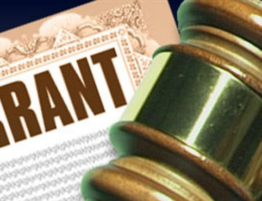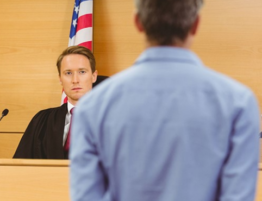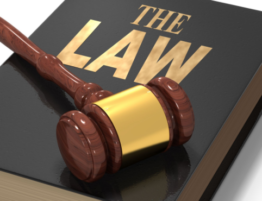
RED FLAGS: RISK PROTECTION ORDERS, FREE SPEECH, AND GUN RIGHTS
Motion to Dismiss Granted!
It is a sad commentary on our country as it exists today that, while in general violent crime is going down, mass shootings and mass killings appear to be on the rise. For many, a night out to a movie or a concert is now tinged with fear and furtive looks towards the emergency exits. The market for bulletproof backpacks is booming. Calls for solutions, from arming teachers to banning high-powered weapons are debated on the evening news and in the halls of the legislature, but it remains to be seen if we will ever really feel safe again.
Risk Protection Order
In this atmosphere of justified paranoia, states have begun to pass what is being called “red flag laws.” Florida passed its red flag law in the wake of the tragic shooting at Marjory Stoneman Douglas High School. Technically called a risk protection order, these laws basically strip people of their Second Amendment rights and are used to take your guns away. These red-flag laws can be used against you even if you haven’t committed or been charged with a crime.
The process is triggered by law enforcement if an officer states in a petition and under oath that she believes you pose a significant danger to yourself or others. If a judge finds by “clear and convincing” evidence that you pose such a danger, you will lose your right to possess a firearm for up to twelve months, or longer if the order is extended. You will have to surrender all firearms and ammunition in your possession to law enforcement, as well as your concealed weapons permit. If law enforcement believes you still possess a gun, they can get a warrant to search your home. If they find a firearm or ammunition, you can be charged with a felony and can go to prison. Possessing a gun is a crime, the same as if you were a convicted felon, even if you have committed no prior criminal acts.
As of September 2019, Florida’s red flag law has survived its first constitutional hurdle. In Davis v. Gilchrist County Sheriff’s Office, the First District Court of Appeal upheld the law, finding no violation of due process, partially because the statute was not punitive in nature, but was instead preventative. In justifying the infringement of the right to bear arms, the court stated, “the prevalence of public shootings and the need to thwart the mayhem and carnage contemplated by would-be perpetrators do represent an urgent and compelling state interest.” Likely, the legal challenges to Florida’s and other states’ red flag laws will continue until ultimately decided by the United States Supreme Court.
More About Red Flag Laws
One way that we have seen the red flag law triggered is where someone has been accused of making a threat against a person or location. In the age of social media, a careless statement can be perceived as a threat, even though the person making it never intended to be taken seriously. People sometimes say stupid things on the internet that can lead to an arrest and felony criminal charges, such as making written threats to kill, do bodily injury, or commit a mass shooting, or threatening to discharge a destructive device. We expect to see increasing use of red flag laws and arrests for making threats due to social media and increased public outcry over mass violence. For example, Florida has just announced a campaign called “It’s No Joke” to inform children that even joking threats will be prosecuted and punished as crimes. Despite the fact that nearly 800 Florida children were already arrested and charged for making school threats in the fiscal year 2018-2019. It is yet to be seen if arresting, even more, children will have the desired impact on school shootings. Parents and children are being encouraged to report any statements they hear or see that could be taken as a threat, so more arrests will certainly occur.
Casting such a wide net is bound to capture many innocent people, along with the guilty. We at de la Grana|Boardman have been successful in fighting these prosecutions when they seek to punish constitutionally protected speech. Under our system of laws, the government is only able to punish a threat when it is a “true threat.” That means, basically, only where the statement was meant to be received as a threat or could only be taken as a serious threat. Joking and off the cuff remarks that one might see on Facebook or in the comments section, while potentially in poor taste, are not criminal unless they are “true threats.”
Recently, in Pinellas County, we represented a young man who stated on YouTube that he wanted to throw Molotov Cocktails at his church, before going on to say that such an action would be ill-advised, in a rambling sort of haphazard monologue. Careless? Certainly. Criminal? Absolutely not. After extended litigation, we were able to win the dismissal of the case over the objection of the prosecuting attorney. You can read a redacted version of the opinion of the court here. It is well reasoned and spells out the constitutional issues in more detail than I could hope to do in this entry.
The world can be a dangerous place, but we cannot lose sight of what makes this country special. Our freedom from government overreach should be cherished and protected. If you or someone you love has been arrested or accused of making a threat in person or online, it is time to call a lawyer who understands these issues.









